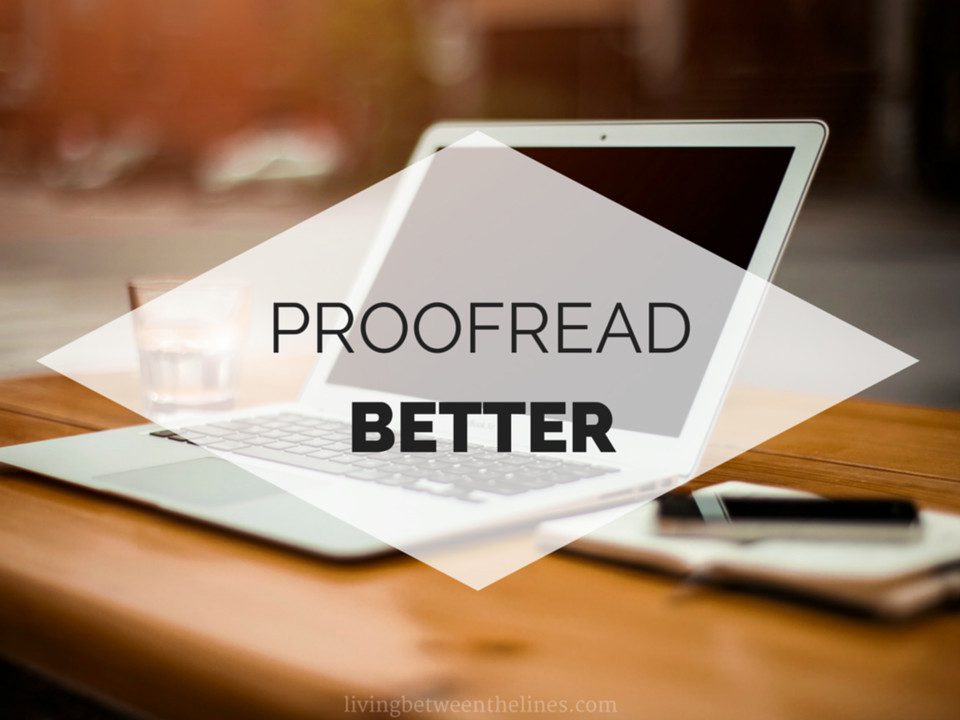Proofreading is a process in which a person searches their own written work for errors; both grammatical and typographical in nature, before submitting the paper. By proofreading, a person shows the readers that they take pride in their work and are serious about it. When a person proofreads, they mostly look for:
- Spelling mistakes
- Errors in punctuation
- Grammatical mistakes
- Clear references and citations
- Uneven sequence of paragraphs
Proofread papers online
In professional fields related to business etc. Proofreading is as important as it is in any academic field. In business, any mistake made in proofreading will not only cost you your image or brand in regards to misinformation being spread, for instance, the mention of incorrect contact information or name but expenses as well that you will have to endure due to misquoting a price, reprinting costs in regards to brochures, pamphlets, pan flexes, etc.
Other words for proofreading are:
- Pore (over)
- Peruse
- Reread
- Review
- Leaf through
- Scan
- Skim
The above words have been mentioned here so as to warn readers that proofreading is not to be associated with editing since there is a slight difference between proofreading and editing (mainly because there are many types of editing).
We have mentioned the different types of editing below:
1. Development Editing:
This occurs when the writing process starts and refers to working in close proximity by developing a manuscript with the author and coaching them on structure, content as well as the presentation of the manuscript; development editing can also take place when the first draft is written.
2. Line Editing:
In this particular process, a person (an editor or the writer themselves) must go over each line of written text one by one which is followed by correcting any spotted errors Revising sentences in order to achieve clarity of concision Examining the voice, tone or presentation to notice any inconsistencies.
The line editor will in some cases make the changes in the written document directly or suggest the changes to the writer in comments. The main objective is to polish the written text until the development of the final draft comes into being.
3. Copy Editing:
This process includes looking over spelling, grammar, and punctuation as well as making sure the use of fonts, spelling, and hyphenation, etc are consistent along with ensuring that the text is written according to the style guide. In the end, one must also check any academic document for references and ensure they also follow the style guide.
Both line editing and copy editing overlap each other. The former is concerned with how to better express things whereas the latter is concerned whether something is or was correctly expressed and thus is more technical.
4. Proofreading:
The process of editing is finalized with this step. When the writer or the editor reach this point, this procedure should only be limited to correcting minute typographical errors.
Before You Proofread
Writing an academic paper requires plenty of time and energy so it is a good idea to start writing a couple of weeks ahead of the deadline. In this way, you will have a few days left to edit the paper as well. Print out your paper and keep a pen handy. Editing in the old school way might be lengthier but it sure comes in handy, trust me on this. Make a list of requirements that need to be met according to the institution you are affiliated with. The following are a few requirements that should be met before you proofread papers for money and the final time and send it.
Also Check: The Importance of Proofreading Your Documents
- Check to make sure you have fulfilled all the criteria that were set by your institution.
- Check whether the formatting requirements have been met and whether all the sources and data pertaining to them were included.
- Check to see if the word count and page requirement have been met.
When you are Proofreading
- Again, remember to give yourself plenty of time to proofread so that no errors are left unchecked.
- Read the paper aloud as if you were presenting it to an audience.
- You can read it to a friend as well or have them read it aloud to you.
- Look for common errors in the paper. Read each sentence separately from the end of the paper so that you can focus on which sentence needs to be edited instead of just focusing on whether the whole paper communicates your ideas or not.
Why should You Get Someone to Proofread Papers for You
Proofreading is the final step a writer takes before considering his work complete. However, not all writers have the skills to proofread a document well. There are many requirements that should be met before a paper is worthy of submission and hence it is always a better idea to get a friend to proofread your academic paper or hire a professional. The benefits of hiring a professional editor are numerous. Here are a few to begin with:
- When you hire an editor that is not close to you personally, they can be critical of your work and will not hesitate to tell you where you have made mistakes.
- They can also improve your sentence structure so that the message you have tried to communicate with your readers can reach them in a clear and concise manner.
- Many people confuse themselves over the use of the colon, the semicolon, and various other punctuation marks. A professional editor is well-versed in the linguistics dos’ and don’ts and hence knows exactly where which punctuation mark should be placed.
- Editing is an essential part of the writing process and should not be taken lightly. Professional proofreaders make sure that your paper adheres to the format set by your institutions. They will make sure your written work is concise, clear-cut, easy to understand and well written.
Modern Proofreading
In today’s day and age, this process combines both the elements from copy editing and proofreading when working in Microsoft Word. If you require a completely ‘pure’ proofread document without any copy editing, the proofreader should be made aware of this requirement before they begin.
It doesn’t need to be said that proofreading can bore a person senseless, however, it needs to be done. Proofreading is also necessary if you want your document to have a more professional look rather than one that is amateur. In editing, one makes large-scale changes while in proofreading, one only needs to look for minor issues that require alternation.
It is always a better idea to get someone else to proofread papers of your work instead of doing it on your own as a fresh pair of eyes can always point out what is wrong or missing in the paper. Creative Savantz is overflowing with professional editors ready to do your bidding in a quick and efficient manner. Our editors are capable, reliable and most importantly well-educated in their respective fields. They even provide you with help in writing your paper for you and can even provide you with custom-made essays, research papers, and thesis. Come to us and forget all your literary problems.

